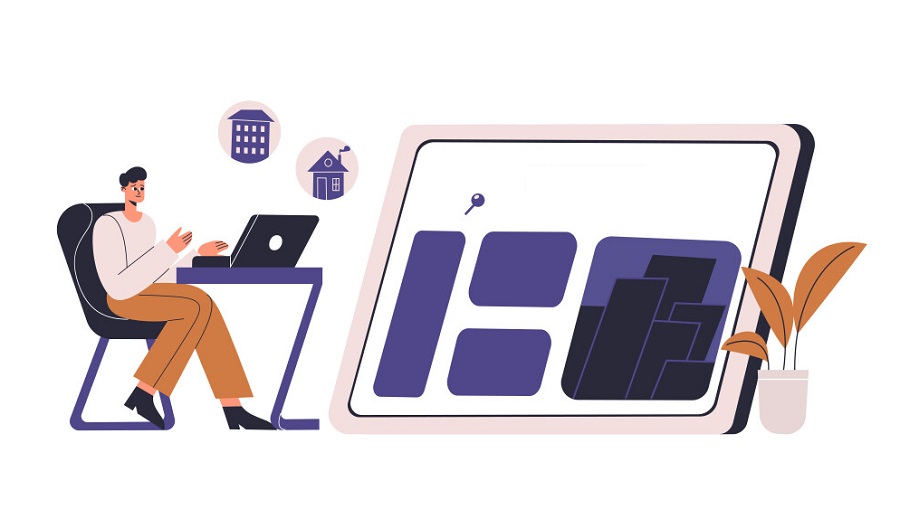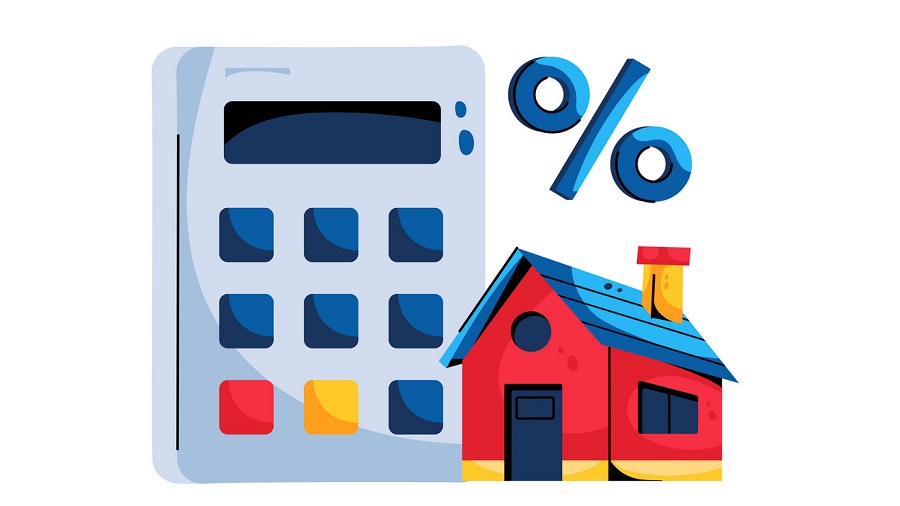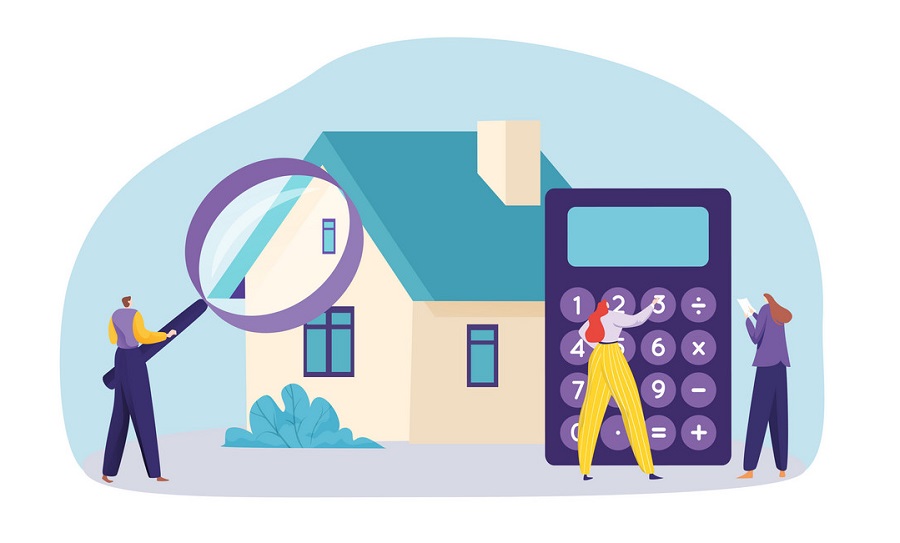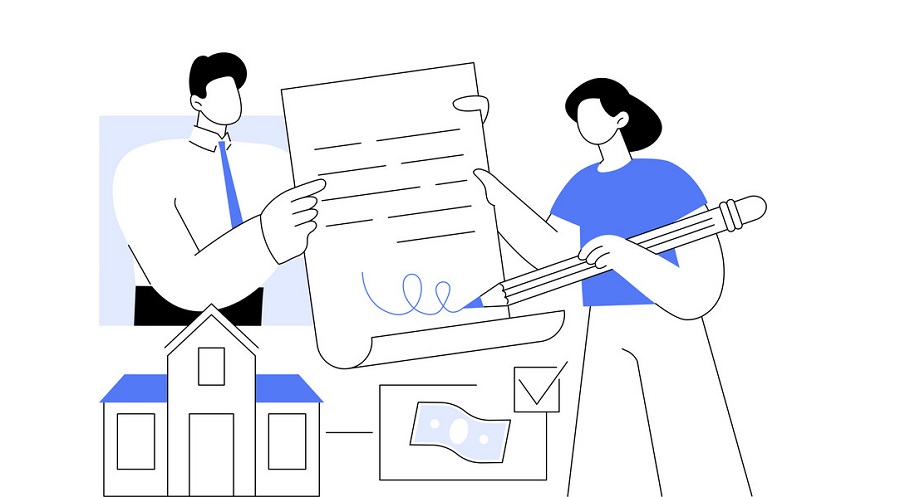Tag: loan against property in noida

Mortgage loans are fundamental financial tools that empower people to purchase homes without the need to pay the entire cost upfront. These loans are gotten by the actual property, guaranteeing that lenders have a safety net on the off chance that the borrower defaults on their payments.
Types of Mortgage Loans
● Fixed-Rate Mortgage Loans: These loans have a reliable interest rate all through the term, making monthly payments predictable.
● Adjustable-Rate Mortgage Loans (ARM): The interest rate for ARMs fluctuates in view of market conditions, which can bring about changing monthly payments.
● FHA Loans: Upheld by the Federal Housing Administration, these loans are great for first-time homebuyers with lower credit scores or more modest down payments.
● VA Loans: Accessible to veterans and well-trained help individuals, VA loans frequently offer great terms and don’t need a down installment.
Benefits of Mortgage Loans
● Homeownership: The clearest benefit is the capacity to claim a home, which can give long-haul financial soundness and a feeling of achievement.
● Tax Benefits: Mortgage interest payments are, in many cases, tax-deductible, which can lessen your general tax trouble.
● Fixed Monthly Payments: With a fixed-rate mortgage, your monthly payments continue as before, making budgeting easier.
How You Can Apply for a Mortgage Loan Online?
In the present digital age, it’s easier than at any time in recent memory to “Apply For Mortgage Loan Online“. The interaction can be completed from the comfort of your home, saving you time and effort. Here is a step-by-step guide:
1. Research Lenders: To find the best mortgage loan rates and terms, start by examining different lenders. Check out what banks, credit affiliations, and online lenders offer that might be of some value.
2. Check Your Credit Score: Your credit score is an essential thought in figuring out your mortgage loan eligibility and interest rate. Acquiring a copy of your credit report can allow you to affirm that your interest rate is accurate.
3. Gather Documentation: Lenders will require a few reports to deal with your “Mortgage Loan“ application. Commonly required items include:
● Proof of income
● Employment verification
● Bank statements
● Identification
4. Pre-Qualification: Numerous lenders offer pre-qualification tools online. Pre-fitting the bill for a mortgage loan provides you with an estimate of how much you can borrow and what your monthly payments may be.
5. Complete the Online Application: Whenever you’ve picked a bank, finish up their online mortgage loan application form. Be prepared to give nitty-gritty information about your financial situation, employment, and the property you wish to purchase.
6. Submit Documentation: In the wake of submitting your application, you’ll have to transfer the expected documentation. This should normally be possible safely through the moneylender’s online entryway.
7. Wait for Approval: The moneylender will review your application and documentation while you wait for approval. It could require anywhere from several days to a portion of a month to complete this cooperation. Additional information or clarification may be searched for at this point.
8. Mortgage Loan Terms: At whatever point upheld, you’ll receive a loan estimate detailing the terms of your mortgage loan, including the monthly portion, interest rate, and closing costs. Carefully read this over to guarantee it addresses your issues.
9. Closing: When you consent to the terms, you’ll continue to the closing stage. This includes marking the final paperwork and paying any essential expenses. The moneylender will then support your mortgage loan, permitting you to take responsibility for your new home.

When they need significant financial assistance, people frequently investigate different borrowing choices. One such choice is benefiting from a loan against property (LAP). This sort of loan permits borrowers to use the value of their property to secure funds. Be that as it may, prior to plunging into this financial responsibility, it’s critical to understand the loan against property rate and the factors influencing it.
What is a Loan Against Property Rate?
Loan against property rate alludes to the interest charged by lenders on the acquired amount. It is normally communicated as a level of the total loan amount and can fundamentally influence the general cost of borrowing. Understanding the factors influencing this rate is fundamental for borrowers to settle on informed choices.
The loans against property interest rate fluctuates among lenders and might be fixed or floating. Fixed interest rates stay steady all through the loan tenure, giving borrowers consistency in repayments. Then again, floating interest rates vary in light of market conditions, offering the potential for savings on the off chance that interest rates decline yet representing a gamble of higher installments on the off chance that rates rise.
Factors Influencing Loan Against Property Rate
1. Property Valuation: The essential element influencing the “Loan against property rate“ is the value of the property being presented as a guarantee. Lenders survey the market value of the property to decide its worth. A higher valuation might bring about a lower interest rate, as it gives more noteworthy security to the bank.
2. Loan Amount: The amount of loan against property looked for by the borrower likewise assumes an urgent part in deciding the interest rate. Larger loan amounts might draw in lower interest rates as lenders stand to procure more from higher loan volumes.
3. Loan Tenure: The length for which the loan is benefited, known as the loan tenure, can impact the interest rate. By and large, more limited tenures might accompany lower interest rates, while longer tenures might have marginally higher rates to make up for the drawn-out repayment period.
4. Borrower’s Creditworthiness: Lenders survey the creditworthiness of borrowers prior to endorsing a loan against property. Factors such as FICO rating, repayment history, and pay soundness are considered. Borrowers with a solid credit profile are probably going to meet all requirements for lower interest rates, in contrast to those with an unfortunate record of loan repayment.
5. Economic Factors: Outer economic factors, for example, winning market interest rates, inflation, and economic conditions, likewise influence loans against property rates. Lenders change their loaning rates in view of these factors to oversee gambles and keep up with benefits.
Market Competition and Lender Policies
Market competition among lenders likewise assumes a critical part in deciding “Loan against property interest rates“. Lenders might change their interest rates to draw in borrowers and gain an upper hand in the market. Furthermore, lender policies and strategies, like promotional offers, discounts, and special schemes, can affect the interest rates proposed to borrowers. It’s fundamental for borrowers to research and contrast the offerings of numerous lenders with recognizing the most serious loan against property interest rates accessible in the market.

In the present unique monetary landscape, people frequently wind up needing significant financial assets to satisfy different yearnings, whether it’s expanding a business, financing education, or managing unanticipated costs. During such occasions, investigating roads, like applying for a loan against property, arises as an informed decision. This article digs into the process to apply loan against property, featuring the convenience of online applications and the vital elements to consider.
Understanding the Concept: Loan Against Property
A loan against property (LAP) is a secured loan that permits people to use the market value of their property to secure funds from financial institutions. This type of getting offers borrowers the adaptability to use the loan amount for different purposes, going from business extension to debt consolidation, without liquidating their assets.
Applying Loan Against Property: The Process Simplified
1. Research and Comparison: Prior to starting the loan application process to apply online loan against property, people ought to conduct careful research to understand the different loan products accessible in the market. Looking at interest rates, loan tenure, processing fees, and repayment terms across various financial institutions enables borrowers to settle on informed choices lined up with their financial goals.
2. Assessment of Eligibility: Financial institutions assess a few boundaries to decide a singular’s eligibility for a loan against property, including income stability, credit history, property valuation, and existing liabilities. Applicants should guarantee that they meet the eligibility criteria determined by the bank to upgrade the possibilities of loan endorsement.
3. Documentation: The documentation process is a vital part to “Apply loan against property“. Ordinarily, applicants are expected to submit documents, for example, property papers, identity proof, address proof, income documents, and bank statements. Guaranteeing the culmination and accuracy of the documentation improves the productivity of the loan application process.
4. Property Valuation: Banks lead an exhaustive assessment of the property promised as insurance to discover its market value and decide the loan amount that can be dispensed. Drawing in certified valuers works with an objective evaluation, accordingly assisting the loan endorsement process.
5. Online Application: With the expansion of digital platforms, financial institutions offer applicants the convenience of applying for a loan against property online. Online application portals smooth out the process by empowering borrowers to submit vital documents, track application status, and get continuous updates from the solace of their homes.
Benefits of Applying for Online Loan Against Property
1. Convenience and Accessibility: Online loan applications take out the requirements of geological boundaries and time limitations related to conventional banking channels. Borrowers can start the application process whenever, anyplace, leveraging the consistent connection point of digital platforms.
2. Enhanced Transparency: Online loan applications advance transparency by outfitting exhaustive data in regard to loan products, terms, and conditions. Borrowers can get itemized experiences into interest rates, EMIs, processing fees, and other appropriate boundaries, working with informed navigation.
3. Expedited Processing: Leveraging digital platforms facilitates the loan endorsement and disbursal process, limiting the time required to reevaluate related to manual processing. Robotized confirmation mechanisms and electronic archive accommodation speed up the assessment process, empowering borrowers to get to funds quickly.
4. Secure Transactions: To “Apply online loan against property“ applications consolidate vigorous security protocols to defend delicate financial data and alleviate the gamble of fraudulent exercises. Encryption advances and multi-layer authentication mechanisms guarantee the honesty and secrecy of transactions, imparting trust among applicants.

In today’s financial landscape, individuals often end up needing substantial funds for various purposes, whether it’s for business expansion, education, medical emergencies, or other significant expenses. In such scenarios, one viable option is to leverage one’s property to secure a loan, known as a Loan Against Property (LAP). This financial tool provides access to considerable funds while allowing borrowers to retain ownership of their property. In this article, we dig into the intricacies of Loan Against Property and the factors affecting its Equated Monthly Installments (EMIs).
Understanding Loan Against Property
A “Loan Against Property“ is a secured loan where individuals vow their residential or commercial property as collateral to secure a loan from a financial institution. The loan amount sanctioned is typically a certain percentage of the property, still up in the air by the lender’s assessment.
Advantages of Loan Against Property
1. Higher Loan Amounts: Compared to unsecured loans, LAPs offer higher loan amounts because of the collateral in question.
2. Lower Interest Rates: Since LAPs are secured loans, they often accompany lower interest rates compared to personal loans or credit cards.
3. Longer Tenure: Financial institutions usually offer longer repayment tenures for LAPs, making EMIs more manageable.
4. Flexible End-Use: Borrowers have the adaptability to use the loan amount for various purposes, including business expansion, obligation consolidation, education, medical expenses, or home renovation.
Factors Affecting Loan Against Property EMI
Equated Monthly Installments (EMIs) represent the fixed monthly payments that borrowers make toward repaying their loans. Several factors impact the computation of “Loan Against Property EMI“:
1. Loan Amount: The principal amount borrowed significantly impacts the EMI. Higher loan amounts result in higher EMIs, assuming different factors remain constant.
2. Interest Rate:The interest rate charged by the lender is a crucial determinant of the EMI amount. Lower interest rates lead to lower EMIs and vice versa.
3. Loan Tenure: The repayment tenure chosen by the borrower plays a pivotal job in deciding the EMI. Longer tenures result in lower EMIs; however, may lead to higher overall interest payments.
4. Type of Interest Rate: LAPs offer both fixed and floating interest rate options. Fixed-rate EMIs remain constant all through the loan tenure, giving stability in repayment. Conversely, floating-rate EMIs fluctuate based on market conditions, potentially leading to variations in EMI amounts.
5. Borrower’s Credit Profile: The borrower’s credit history and credit score impact the interest rate offered by the lender. Individuals with a robust credit profile may secure loans at more favorable interest rates, thereby affecting the EMI amount.
Managing Loan Against Property EMIs
While LAPs offer numerous benefits, borrowers must actually manage loans against property EMIs to avoid financial strain. Here are some strategies:
1. Budgeting: Assess your monthly pay and expenses to decide your repayment capacity. Allocate a portion of your pay towards LAP EMIs while ensuring other financial obligations are met.
2. Prepayment Option: Some lenders allow borrowers to make prepayments towards their LAP, lessening the outstanding principal amount and overall interest trouble. Consider leveraging this option to accelerate loan repayment and diminish EMIs.
3. Refinancing: Periodically evaluate refinancing options to secure lower interest rates or favorable loan terms. Refinancing can assist with diminishing EMIs and save on interest costs over the loan tenure.
4. Maintain a Good Credit Score: Maintain a healthy credit score by honoring existing financial commitments and managing credit responsibly. A good credit score enhances your bargaining power with lenders and may result in lower interest rates on LAPs.

People frequently need significant funds in the always-developing landscape of personal and professional financial demands. Whether it’s for funding schooling, expanding a business, overseeing medical expenses, or chasing after other life goals, approaching a dependable and adaptable wellspring of funds is fundamental. This is where the choice to “APPLY FOR LOAN AGAINST PROPERTY“ arises as a powerful arrangement. With the additional comfort of applying online, the process has become significantly more available and efficient.
Benefits of Applying for Loan Against Property
1. Leverage Your Asset’s Value – A property frequently addresses a critical venture for people. When you apply for loan against property it empowers borrowers to leverage the value of this asset without surrendering possession. This is a reasonable method for getting significant funds while holding the drawn-out benefits related to property proprietorship.
2. Lower Interest Rates – One of the vital motivators to settle on a loan against property is the relatively lower interest rates. Lenders see the loan as a secure transaction because it is upheld by unmistakable collateral. Thus, borrowers can profit from decreased interest rates contrasted with unsecured loans, bringing about extensive investment funds over the loan tenure.
3. Extended Repayment Tenure – The extended repayment tenure presented by a loan against property choices separates it from numerous other lending options. This element is exceptionally gainful for those looking for more significant loan amounts. With a more extended repayment period, borrowers can deal with their financial commitments all the more serenely, with more modest, regularly scheduled payments that align with their budgetary imperatives.
4. Versatile Fund Utilization – Applying for a loan against property gives borrowers an adaptable extension for fund utilization. Whether you want to revamp your home, finance a kid’s advanced education, solidify existing obligations, or investigate business extension opportunities, the acquired sum can be distributed given your particular prerequisites.
Applying for Loan Against Property Online
1. Seamless Application Process – Embracing innovation, numerous financial establishments offer the comfort to “APPLY FOR LOAN AGAINST PROPERTY ONLINE“. The process is intended to be easy to use and natural. Candidates can quickly finish the vital structures, transfer essential documents, and present their applications. Online platforms frequently guide candidates through the process; they are precisely given to guarantee every required detail.
2. Time-Efficient Approval – The online application route accelerates the approval process. Borrowers can expect speedier reactions to their loan applications, going with it an ideal decision while confronting pressing financial requirements. The smoothed-out online process decreases regulatory postponements, permitting you to get timely approval and admittance to the necessary funds.
3. Transparent Communication – Online loan application platforms encourage transparent communication among borrowers and lenders. Candidates are kept educated about the status of their application, expected necessities, and the following stages. This upgraded communication adds to a more efficient and bother-free getting experience.
4. Secure Report Handling – Record security concerns are everyday while managing financial issues. Trustworthy online loan application platforms focus on data security and encryption. This guarantees that sensitive documents and data are sent and put away securely, giving borrowers true serenity throughout the application process to apply for loan against property online.

In today’s ever-changing financial landscape, individuals often need substantial funds to meet various personal or business-related expenses. One of the most viable solutions for acquiring a significant amount of money is by availing a loan against property. There are a few steps to follow for how to “APPLY FOR LOAN AGAINST PROPERTY“ including the convenience of applying online.
Understanding Loan Against Property
A loan against property (LAP) is a tied-down loan that permits borrowers to promise their private or business property as insurance to get assets from a monetary foundation. The loan amount is usually a percentage of the property’s market value, and the interest rates are relatively lower than unstable loans because of the additional security.
Step by Step Guide to Applying for Loan Against Property
1. Determine Eligibility: Before you apply for a loan against property, evaluate your eligibility. Lenders ordinarily consider the property’s value, the borrower’s income, age, credit history, and current liabilities. Eligibility criteria might differ among lenders, so it is fundamental to check and contrast different foundations with a view as the best fit.
2. Gather Necessary Documents: Prepare the list required documents to support your loan application. Commonly requested documents include property papers, income proof, identity proof, address proof, bank statements, and passport-sized photographs. These documents can be ready in advance that will expedite the application process.
3. Evaluate Loan Amount and Tenure: Determine the amount of loan you require and the suitable tenure for repayment. Use online loan calculators to estimate monthly installments and choose a tenure that aligns with your financial capabilities.
4. Research Lenders and Offers: Conduct thorough research on lenders who offer loans against property. Compare interest rates, processing fees, predisclosure charges, and other terms and conditions. Many lenders have an online presence, making browsing through their offerings and gathering information conveniently.
5. Online Application Process: To Apply for loan against property online is now more straightforward than ever. Visit the official website of your chosen lender and navigate to the loan application section. Fill in the required details accurately and upload the necessary documents securely. Online applications save time and offer greater convenience.
6. Await Verification and Approval: Once you submit your application, the lender’s representatives will verify the provided information and documents. This process may involve physical verification of the property. Upon successful verification, the lender will sanction the loan based on the property’s assessed value.
7. Legal and Technical Evaluation: Legal and technical evaluations of the property will be conducted after approval. This step involves verifying the property’s ownership and title deeds and assessing its technical aspects. The lender may also require you to purchase property insurance during this phase.
8. Loan Disbursement: Upon completing the legal and technical evaluation, the lender will disburse the loan amount directly to your bank account or as a demand draft, as per your preference.
Benefits Of Applying for a Loan Against Property Online
If you “APPLY FOR LOAN AGAINST PROPERTY ONLINE“ it offers numerous benefits. It provides convenience and saves time, as borrowers can complete the application process from the comfort of their homes. Online applications also facilitate easy comparisons of lenders and their offerings, ensuring better interest rates and terms. The digital process reduces paperwork and accelerates approval, leading to quicker loan disbursement. Moreover, online platforms offer secure data handling, safeguarding sensitive information. With these advantages, applying for a loan against property online is a smart choice for those seeking financial assistance with minimal hassle.
